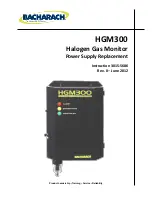
Basic Metal Detector
H673
Instructions for Use
Please read and retain these instructions for future reference
v001: 26/03/21
RULES TO BE OBSERVED
1.
Always get permission before searching any site.
2.
Respect the rights and property of others.
3.
Observe all national, state, and local laws while treasure hunting.
4.
Never destroy historical or archaeological treasures. If you are not sure about an object you have
found, contact a museum or historical society in your area.
5.
Leave the land and vegetations as it was. Fill in any holes you dig.
6.
Do not carry out metal detection on protected sites such as; those defined as Scheduled
Monuments, Sites of Special Scientific Interest or military crash sites, and those involving human
remain), and also those other sites on which metal-detecting might also be restricted (such as land
under Countryside Stewardship or other agriculture/environment schemes).
7.
You must report any potential treasure to your local Finds Liaison Officer
or the British Museum (
CARE AND MAINTENANCE
1.
The search coil pad is waterproof and can be submerged in either fresh or salt water. However, do
not let water enter into the handle part. After using the search coil in salt water, rinse it with fresh
water to prevent corrosion of the metal parts.
2.
When the sound of the metal detector weakens, replace with a fresh battery.
3.
Never attempt to recharge the non-rechargeable battery.
4.
Remove exhausted battery to avoid leaking.
5.
Handle the metal detector gently and carefully. Dropping it can damage the circuit board and cases
and can cause the metal detector to malfunction.
BATTERIES
•
Keep batteries away from children and pets.
•
Do not mix used and new batteries.
•
Remove the batteries if left for long periods.
•
Never dispose of batteries in a fire.
•
Battery disposal, spent or expired batteries must be properly disposed of and recycled in compliance
with local regulations. For detailed information, contact your local authority.
•
Follow the battery manufacturer’s sa
fety, usage, and disposal instructions.
Code &
Symbol
Type of
Plastic
Polyethylene
Terephthalate
High-Density
Polyethylene
Polyvinyl
Chloride
Low Density
Polyethylene
Polypropylene
Polystyrene
Please
Specify
(includes
ABS,
Nylon)
Commonly
used for
Soft drink and
juice bottles,
shampoo
Milk bottles,
cleaning
product
Pipes,
construction
material,
Shopping
bags, bread
bags, squeezy
Microwaveable
food
containers,
Insulation
boxes, water
cups,
CD’s, crisp
packets,
various






















